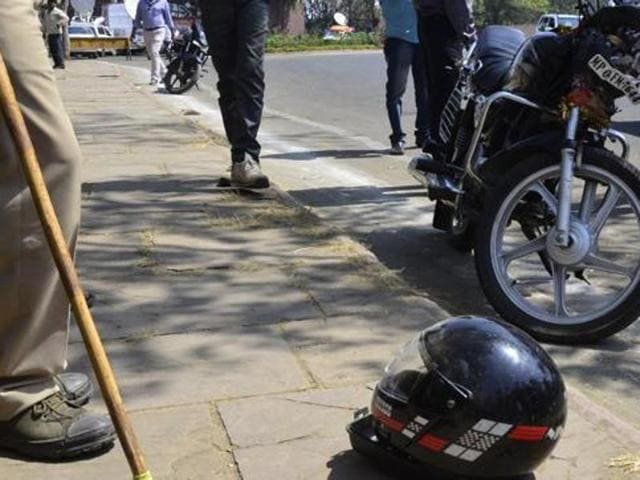Compromise with road mishap victim’s kin not enough to quash FIR, rules HC
A first information report (FIR) registered against a driver for causing death by negligence in a road accident cannot be quashed solely on the basis of a compromise reached with the victim’s family, the Punjab and Haryana high court has ruled.
A first information report (FIR) registered against a driver for causing death by negligence in a road accident cannot be quashed solely on the basis of a compromise reached with the victim’s family, the Punjab and Haryana high court has ruled.

The high court division bench of justice Mahesh Grover and justice Lisa Gill stated in the judgment that in a case registered under Section 304-A (death by negligence) of the Indian Penal Code (IPC), the victim was not present to settle the matter, adding that “to permit a legal representative or legal heir to compromise or settle the matter is indeed an invitation to a dangerous trend and cannot be permitted”.
“To quash the proceedings under Section 304-A solely on the basis of a settlement or compromise arrived at between the accused and the legal representatives is not permissible and militates against all canons of justice,” the division bench ruled.
The high court division bench was answering to a reference from a single-judge bench related to a petition of a Sangrur resident, who had approached the high court seeking quashing of an FIR in a road accident death case on the basis that a compromise had been reached between the accused and legal heirs of the deceased.
After the reference reached the division bench, Haryana and Chandigarh were also made parties and their views were sought. The matter was heard at length during 20-odd hearings since November 2014.
Punjab deputy advocate general Gaurav Garg Dhuriwala had submitted that the said offence could not be termed private in nature and it would not be appropriate to permit quashing of criminal proceedings on the basis of a settlement. While the UT had not responded to the petition, Haryana, too, had opposed leniency with the accused in such a matter and argued that criminal process involving heinous and serious offences were not private in nature.
The HC bench stated that exceptions could be made and high courts could grant relief to the accused where it felt that a prima facie case was not made out in “consonance with the settled principles of law” and to prevent the “abuse of process of law”. “However, this observation for a moment is not to be construed as taking the possibility of a conviction being bleak due to settlement, to be a relevant factor for quashing the FIR under Section 304-A of the IPC,” the HC bench observed.
“To say that courts should not hesitate to intervene in favour of the accused in such cases is indeed a dangerous proposition with a potential to provide an impetus to a proclivity on the part of the drivers to continue with their rash and negligent act buoyed by the thought that they would get away with the crime by affording sufficient compensation to the victim’s legal representatives,” the high court bench observed.
It has further been observed that the question of compensation under the Motor Vehicles Act was a separate issue and there could not be any question of “bartering of a human life” in this manner.
“While being fully conscious of the ground realities of our society where the victim’s family may be in penury and may be beguiled into a compromise due to the harsh realities of life, a stamp of approval over such an activity cannot be afforded by the court,” the bench said, negating the argument that once a compromise had been arrived at there could not be any bar on quashing the FIR.





